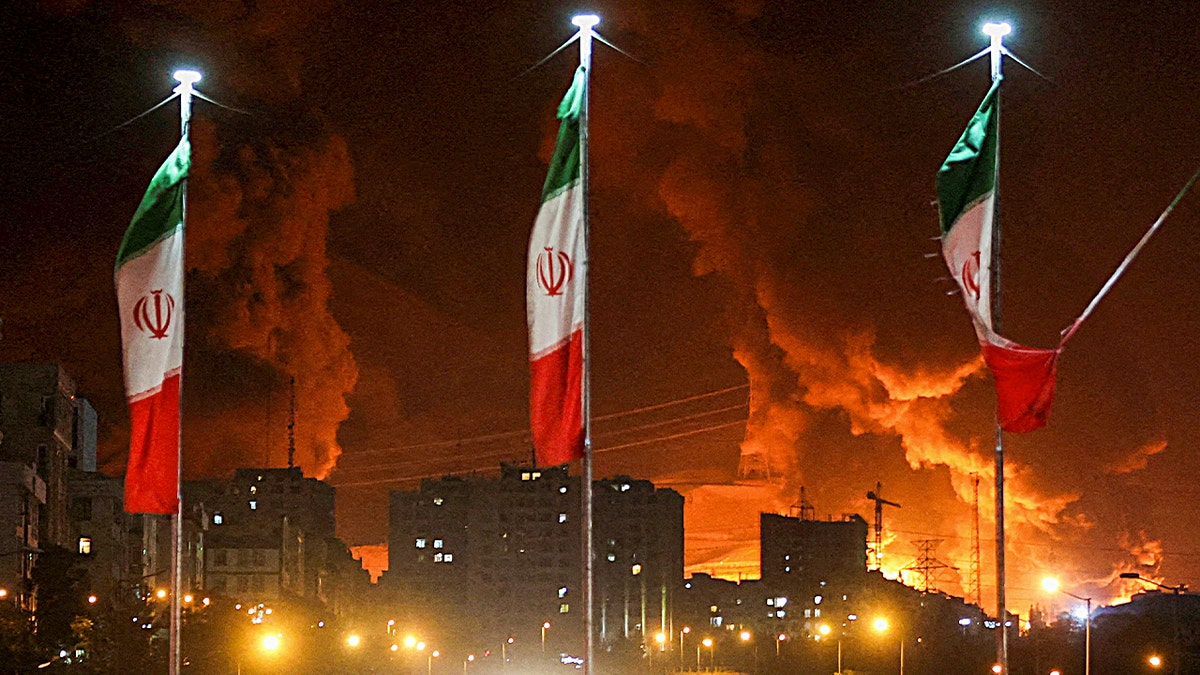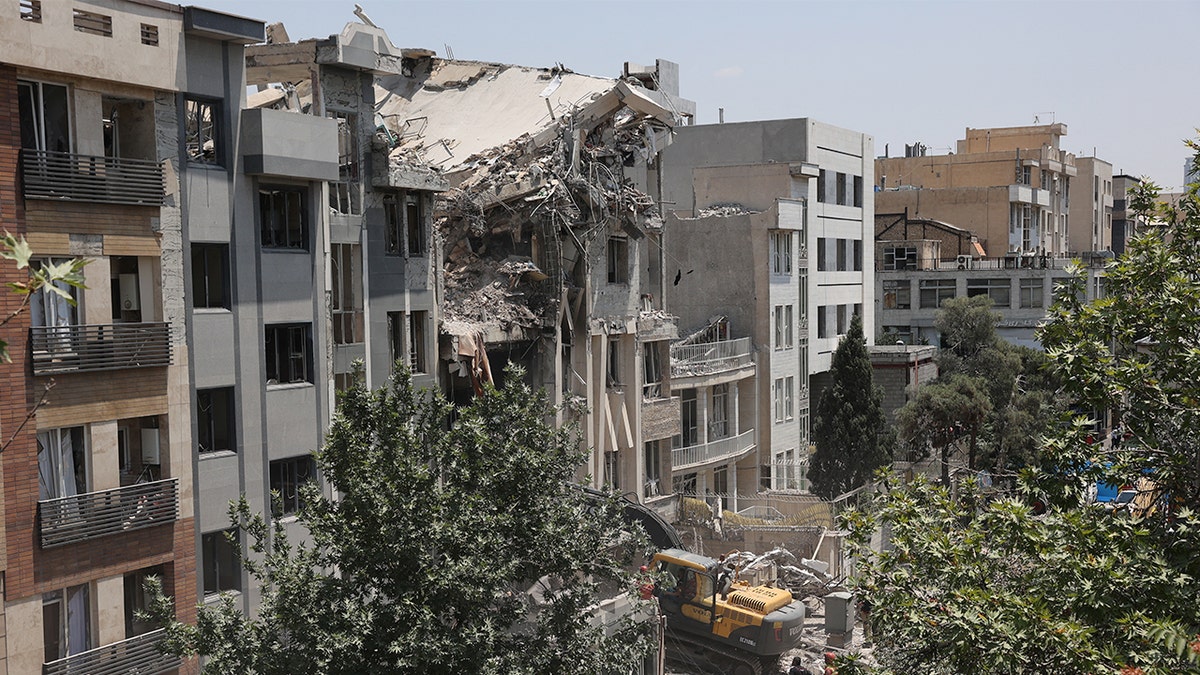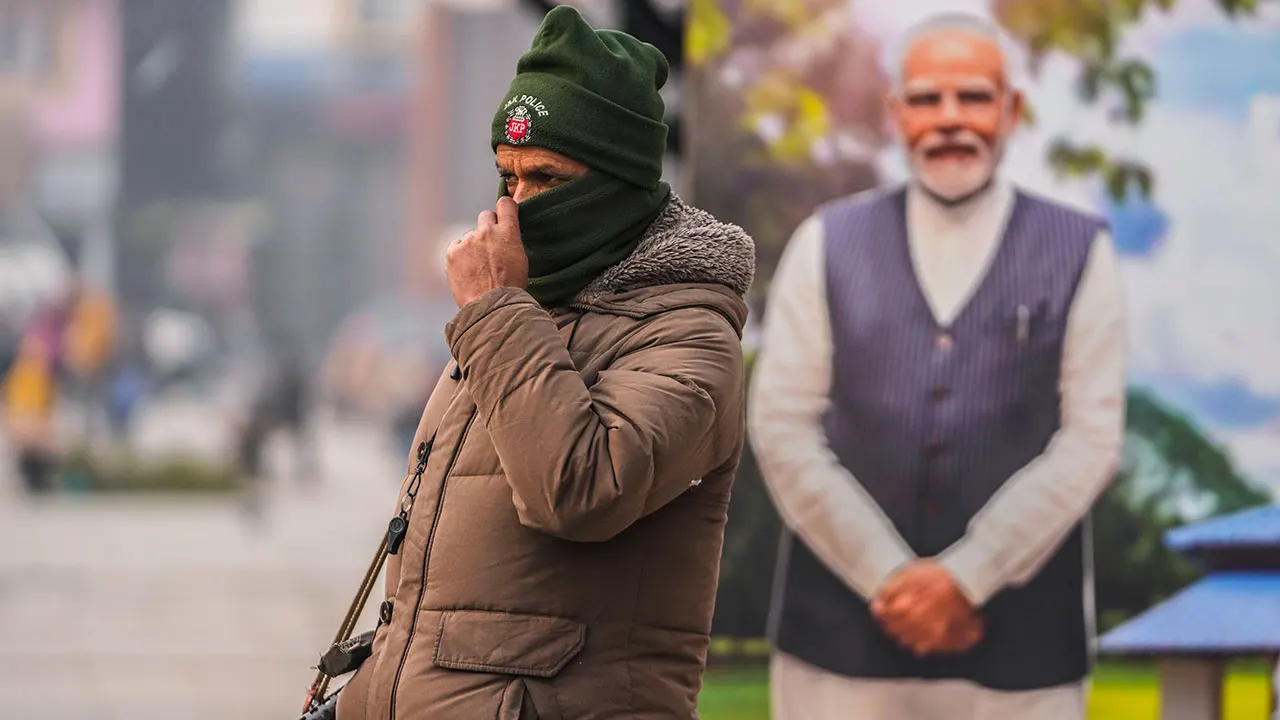NEWYou can now listen to Fox News articles!
Israel’s preemptive attack on Iran not only marked a major milestone for the 77-year-old nation, but also a turning point for the Middle East. According to a former IDF spokesperson, as Jerusalem grapples with the ongoing war in Gaza, it’s clear Israel has its eyes set on one major goal: ensuring that Tehran never obtains a nuclear weapon.
Lt. Col. (Ret.) Jonathan Conricus, former IDF Spokesperson, senior fellow at the Foundation for Defense of Democracies (FDD) and co-founder of “BottomLine Media,” told Fox News Digital that Israel is working to eradicate what it sees as an existential threat.
In the early hours of Friday morning local time, Israel carried out a series of airstrikes and covert operations to take out Iranian infrastructure and senior leadership. The IDF on Saturday said it had killed more than 20 Iranian commanders, including the head of the country’s Intelligence Directorate and the commander of Iran’s surface-to-surface missile array.

Iranian flags fly as fire and smoke from an Israeli attack on Sharan Oil depot rise, following Israeli strikes on Iran, in Tehran, Iran, on June 15, 2025. (Majid Asgaripour/WANA (West Asia News Agency) via Reuters)
“To be frank, a nuclear program like that means it’s personnel before it is infrastructure. And if we’re serious about it — to have a meaningful lasting impact on the Iranian nuclear weapons program means that Israel has to work quite long and quite hard and it means a lot of knowledge has to be deleted,” Conricus said.
While Iran’s infrastructure and leadership have taken major hits in Israel’s Operation Rising Lion, Tehran’s influence over the Middle East, including its proxies, has been damaged. Conricus told Fox News Digital that the crumbling of what he calls “Iran’s ring of fire around Israel” began with Hamas’ Oct. 7 massacres.
“It’s not totally done yet, but Hamas and Hezbollah are very weak compared to what they were on October the 7th, and Iran itself is, I think, the weakest that I’ve ever seen it, militarily and politically,” Conricus said.
“So, I think that with the benefit of hindsight, Iranian strategic planners, when they were thinking about this multi-front assault on Israel from Gaza, from Lebanon, from Syria, maybe from other places, and they had these pipe dreams that that would somehow eradicate the State of Israel — with the benefits of hindsight — may not have been such a brilliant idea.”

Spokesman of Israeli army Jonathan Conricus speaks on the operation as Israeli army’s military operation, which has been launched to expose and thwart cross-border tunnels allegedly dug by Hezbollah along the border with Lebanon, continues at the northern Israeli town of Metula in Israel on December 5, 2018. (Mostafa Alkharouf/Anadolu Agency/Getty Images)
Iran’s nuclear program has been the subject of policy debates and a source of regional tension for decades, as many Arab nations quietly oppose the regime. Following Israel’s attacks, several countries, including France and the U.K., reaffirmed their opposition to Tehran gaining a nuclear weapon, even while criticizing Jerusalem for its operation.
“Many countries behind the scenes are very positive and cheering on Israel and even sending messages of support and wishing us the best of luck against the Iranians because it would suit their strategic goals, and they’re happy that someone is standing up to the regional bully, which is Iran,” Conricus said.
The former IDF spokesperson told Fox News Digital that Israel dealt a significant blow to Iranian deterrence in the Middle East, which could change how other countries in the region respond to Tehran’s demands.

A building stands damaged in the aftermath of Israeli strikes, in Tehran, Iran, June 14, 2025. (Majid Asgaripour/WANA (West Asia News Agency) via Reuters)
CLICK HERE TO GET THE FOX NEWS APP
“Before you know, 48 hours ago, I think if the Iranians threatened people then the level of fear and deterrence would have been reasonably high. Today, after the very humiliating defeats that the Iranians have suffered at the hands of Mossad and Israeli Air Force and special forces, I’m quite confident that Iranian deterrence has taken quite a significant hit and that the countries who perhaps before were very much deterred by the Iranians probably are less so today,” Conricus told Fox News Digital.
However, he noted that those countries still have an opportunity to assert themselves.
Conricus also believes that while “it’s too early in the game” to predict what this could mean for Iran domestically, there is a chance that the Iranian regime could be at stake. The country was already dealing with internal unrest prior to Israel’s attack as the population revolted against the regime’s quashing of basic rights and freedoms.















